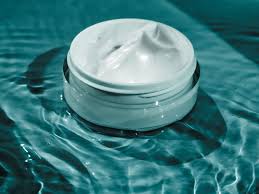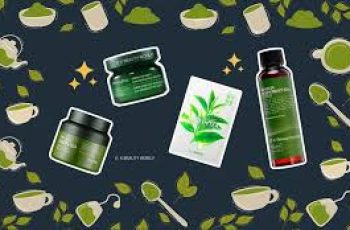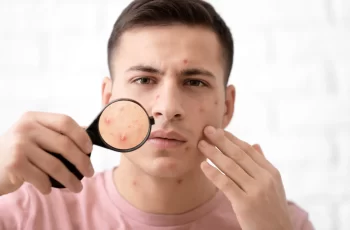
Water in Skin Care Products
Types of Water in Skin Care Products
Water, also found on cosmetic product labels as “aqua”, is found in almost every skin care product. This blog will focus on water in skin care products and water you use to wash your face.
How minerals in water affect your skin
In hard water, mineral salts like Ca2+ and Mg2+ can diminish the foaming ability of surfactants found in cleansing products, leading to the formation of soap scum and calcium deposits in bathtubs and sinks. These minerals also deposit o skin and hair. The reduced foaming of cleansers that these cause may prompt you to increase the amount of cleanser used, resulting in higher exposure to detergents. This can damage your skin barrier. This is why hard water can cause you to get dry skin.
Mineral salts in hard water react with the fatty acids in soaps, forming a substance called “metallic soap” that remains on the skin after rinsing unless washed off with ultra-pure soft water (UPSW). This metallic soap can act as a skin irritant and may trigger allergic responses. It disrupts the skin barrier both directly and by influencing the secretion of lamellar bodies from keratinocytes, a process regulated by Ca2+.
It’s important to note that the irritation potential of surfactants and detergents varies depending on the hardness (amount of Ca2+) of the water used.
Hard water and Eczema
Hard Water and Eczema
Studies have shown that washing with UPSW can decrease symptoms of atopic dermatitis (AD) in children. However, if low concentrations of metallic ions persist in the water, there is no improvement in AD symptoms. In contrast, soft water containing remaining metallic ions does not prevent AD effectively. Research on mice by Tanaka et al. (3) demonstrated that metallic soap induced and worsened AD symptoms unless the mice were washed with UPSW that lacked multivalent cations. The UPSW itself did not exacerbate AD symptoms, but the presence of metallic soap did.
Why Is Water or Aqua The First Ingredient In Skincare Products?
Product labels have ingredients listed in a descending order or predominance.[i] Water, known by the International Nomenclature of Cosmetic Ingredients (INCI) as aqua, is often the ingredient that is found in the largest percent of the skin care product.
But all water is not created equal. Let’s talk about the importance of the source of water used in skin care products. Water used in the pharmaceutical industry in medications is very regulated.
Water is important in skin care for two main reasons:
It is in skin care products and medications
It is used in the skin care routine when washing the face and body
Which types of water are used in skin care products
What Type of Water is Used in Skin Care Products and Cosmetics?
Most skin care products use potable water, but some of the more expensive brands use USP Purified water.
These water classifications are discussed at the end of this blog.
Thermal Spa Water
Thermal Spa water is water that is taken from hot springs. It is also called thermal spring water.
This water has minerals in it that have effects on the skin. See the Table below tat compares minerals in different brands of thermal spa waters.
Each mineral has different effects on skin.
Calcium and magnesium can injure the skin barrier, especially when used with strong detergents. However, selenium soothes the skin while strontium reduces skin stinging. Putting thought into the type of water in your skin care can help you choose the best products for your skin concerns.
Minerals in Thermal Spring Water
Thermal spa waters, as found in renowned brands like La Roche-Posay and Avene, offer a host of beneficial minerals that can nourish and enhance the skin:
Selenium: Exhibits potent anti-inflammatory properties, helping to soothe and calm irritated skin. It also acts as an antioxidant, protecting the skin from harmful free radicals and environmental stressors.
Sulphur: Known for its anti-inflammatory and antimicrobial properties, sulphur can help reduce redness and irritation while promoting skin healing, making it beneficial for acne-prone or sensitive skin.
Zinc: Possessing anti-inflammatory and soothing properties, zinc aids in calming the skin and reducing irritation. It also contributes to wound healing and can be beneficial for acne-prone skin.
Magnesium: Essential for overall skin health, magnesium helps combat stress and soothes the skin. Additionally, research suggests that certain magnesium salts and a mixture of magnesium and calcium salts can accelerate skin barrier recovery, further supporting the skin’s health and function.
Calcium: Crucial for skin barrier repair, calcium plays a vital role in maintaining the skin’s integrity and function. It affects lamellar body secretion from keratinocytes, which are specialized organelles responsible for producing and secreting lipids that contribute to the skin barrier.
The rich mineral composition in thermal spa waters from brands like La Roche-Posay and Avene provides a myriad of benefits, nourishing the skin and promoting a healthy, radiant complexion. These minerals work synergistically to support the skin’s natural functions and address various skin concerns, making thermal spa waters a valuable addition to skincare routines.
Table And List Of Types Of Thermal Spa Waters And Their Contents
table of minerals in thermal spa water
Micellular Water or Micelle Water
Micelle water is composed of mild detergents that form micelles in soft water. Micellular water looks and feels like water but is actually a facial cleanser with surfactants.
It is not a great choice for dry, sensitive skin types so make sure you take our skin type quiz and get our skin care product recommendations. Once you know your Baumann Skin Type, you can read product reviews and shop using your skin type number.
Take the Quiz
Tap Water
Tap water is a form of potable water that comes from a municipality’s water supply. It may have minerals in it such as calcium and magnesium. Hard water, such as the water in New York City, is tap water with a lot of minerals. My hometown of Lubbock, Texas has soft water with fewer minerals. They used to add fluoride to the water when I was growing up there to prevent teeth cavities. Some cities such as Miami where I live now add chlorine to the tap water to prevent algae growth. These minerals have ions that affect skin cleansing, the skin barrier and skin inflammation. This is one reason why you may need a different skin care routine in each city that you go to.
Tap water is often used to make skin care products. As you can see- there is a lot of variability of minerals found in tap water that will affect the final skin care product.
Is tap water safe to include in skin care products?
Distilled Water
Distilled water is considered non-potable water. (It is not suitable for drinking because it has no salt or minerals and is acidic). It is demineralized. It is often made by boiling water and collecting the steam which has no minerals or microorganisms in it. Distilled water is a good choice for cosmetic products.
Deionized water
Deionized water, also called DI water, has had ions from minerals such as sodium and potassium ions. Deionizing water does not remove microorganisms from the water.
Filtered Water
Tap water that has been run through filters to remove chlorine to improve the taste.
Purified Water
Water must meet clear specifications to be considered USP purified water. Purified water may be susceptible to biofilms, undesirable levels of viable microorganisms, or endotoxins. For this reason, the purification process is continuously validated in order to ensure that water has acceptable chemical and microbiological quality.
Classification of Water
Water found in skin care products is comes from one of two sources:
Produced on-site where used from an internal water system. This is called bulk water
Packaged water that is purchased from elsewhere
The type of water used can affect how well skin care products work.
The ideal water to use in skin care products is sterile water- but this is too expensive. For this reason, USP purified water is the second best type of water used in skin care products. It is combined with preservatives in skin care products. Most companies use potable water because is the cheapest.
Because most organic products do not have preservatives, the type of water used in organic skin care products is very important.
Water can be divided into many types. These are the types of water seen in cosmetics:
Potable water-
Potable water is water that comes from surface and ground sources. It comes from municipal water systems but may also be drawn from wells, rivers, or ponds. It is treated to remove microorganisms, toxic chemicals and fecal matter. Thermal spring water is an example of potable water.
Potable water does have microbes in it. The U.S. Environmental Protection Agency’s (EPA) National Primary Drinking Water Regulations establish maximum contaminant levels (MCLs) for various contaminants.
Potable water is the most common type of water used in cosmetics and skin care products.
US Purified Water
Purified water is most commonly used in the production of non-sterile products intended to be injected or implanted in the skin or body. Purified water systems are susceptible to microbes so they must be monitored and sanitized.
High end skin care products and cosmetics may use USP Purified water, but they are more expensive than those that use potable water.
Sterile water
This water is for the processing of sterile products intended to be used intravenously. It has been packaged and rendered sterile. This water is used in dermal fillers and Botox, but not usually in skin care products because of the cost.
What Type Of Water Is Used Most Commonly In Skin Care Products?
High end skin care products and cosmetics may use USP Purified water, but most use potable water such as thermal spa water, tap water or filtered water.
Looking for a skin care routine for your skin type?
We can help you build a skin care routine from the best medical grade skin care brands.


